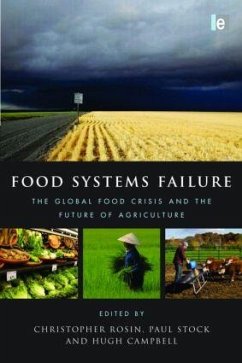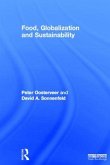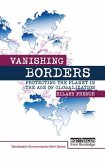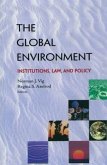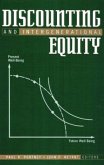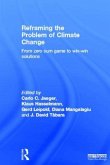Food Systems Failure
The Global Food Crisis and the Future of Agriculture
Herausgeber: Rosin, Christopher; Campbell, Hugh; Stock, Paul
Food Systems Failure
The Global Food Crisis and the Future of Agriculture
Herausgeber: Rosin, Christopher; Campbell, Hugh; Stock, Paul
- Gebundenes Buch
- Merkliste
- Auf die Merkliste
- Bewerten Bewerten
- Teilen
- Produkt teilen
- Produkterinnerung
- Produkterinnerung
This book provides a critical assessment of the contemporary global food system in light of the heightening food crisis, as evidence of its failure to achieve food security for the world's population. It examines both the contradictions in the global food system as well as the implications of existing ideologies of production associated with commodity industrial agriculture using evidence from relevant international case studies.
Andere Kunden interessierten sich auch für
![Food, Globalization and Sustainability Food, Globalization and Sustainability]() Peter OosterveerFood, Globalization and Sustainability180,99 €
Peter OosterveerFood, Globalization and Sustainability180,99 €![Vanishing Borders Vanishing Borders]() Hilary FrenchVanishing Borders176,99 €
Hilary FrenchVanishing Borders176,99 €![Collective Action Collective Action]() Russell HardinCollective Action53,99 €
Russell HardinCollective Action53,99 €![The Global Environment The Global Environment]() Norman J VigThe Global Environment115,99 €
Norman J VigThe Global Environment115,99 €![Discounting and Intergenerational Equity Discounting and Intergenerational Equity]() Paul R PortneyDiscounting and Intergenerational Equity170,99 €
Paul R PortneyDiscounting and Intergenerational Equity170,99 €![Pollution Control in United States Pollution Control in United States]() J Clarence DaviesPollution Control in United States230,99 €
J Clarence DaviesPollution Control in United States230,99 €![Reframing the Problem of Climate Change Reframing the Problem of Climate Change]() Klaus HasselmannReframing the Problem of Climate Change181,99 €
Klaus HasselmannReframing the Problem of Climate Change181,99 €-
-
-
This book provides a critical assessment of the contemporary global food system in light of the heightening food crisis, as evidence of its failure to achieve food security for the world's population. It examines both the contradictions in the global food system as well as the implications of existing ideologies of production associated with commodity industrial agriculture using evidence from relevant international case studies.
Hinweis: Dieser Artikel kann nur an eine deutsche Lieferadresse ausgeliefert werden.
Hinweis: Dieser Artikel kann nur an eine deutsche Lieferadresse ausgeliefert werden.
Produktdetails
- Produktdetails
- Verlag: Taylor & Francis
- Seitenzahl: 250
- Erscheinungstermin: 2. November 2011
- Englisch
- Abmessung: 234mm x 156mm x 16mm
- Gewicht: 535g
- ISBN-13: 9781849712293
- ISBN-10: 1849712298
- Artikelnr.: 33324795
- Herstellerkennzeichnung
- Libri GmbH
- Europaallee 1
- 36244 Bad Hersfeld
- gpsr@libri.de
- Verlag: Taylor & Francis
- Seitenzahl: 250
- Erscheinungstermin: 2. November 2011
- Englisch
- Abmessung: 234mm x 156mm x 16mm
- Gewicht: 535g
- ISBN-13: 9781849712293
- ISBN-10: 1849712298
- Artikelnr.: 33324795
- Herstellerkennzeichnung
- Libri GmbH
- Europaallee 1
- 36244 Bad Hersfeld
- gpsr@libri.de
Christopher Rosin is a Research Fellow and Deputy Directory with the Centre for Sustainability: Agriculture, Food, Energy, Environment (CSAFE) at the University of Otago in Dunedin, New Zealand. His primary research interest is in the social negotiation of sustainability in the agricultural sector. Paul Stock is a Lecturer in Sociology and a Post-Doctoral Fellow with the Centre for Sustainability: Agriculture, Food, Energy, Environment (CSAFE) at the University of Otago in Dunedin, New Zealand. Paul's current research interests include the social and cultural aspects of agriculture, the intersection of morality and the environment, and the Catholic Worker movement. Hugh Campbell is Professor of Sociology and was formerly Director of the Centre for the Study of Agriculture, Food and Environment at the University of Otago in Dunedin, New Zealand. His research interests include rural sociology, sustainable agriculture, neoliberalism and agrifood governance, food waste, masculinity and rural gender.
Prologue: Food Security - Now is the Future Robert Watson 1. Introduction:
Shocking the Global Food System Christopher Rosin, Paul Stock and Hugh
Campbell 2. Agriculture and Food Systems: Our Current Challenge Jules
Pretty 3. Let Us Eat Cake? Historically Reframing the Problem of World
Hunger and its Purported Solutions Hugh Campbell 4. Trading into Hunger?
Trading out of Hunger? International Food Trade and the Debate on Food
Security Bill Pritchard 5. Biofuels and the Financialisation of the Global
Food System Philip McMichael 6. The Right to Food: A Right for Everyone
Claire Mahon 7. Plentiful Food? Nutritious Food? Colin Butler and Jane
Dixon 8. A Utopian Perspective on Global Food Security Paul Stock and
Michael Carolan 9. Climate Change and the Resilience of Commodity Food
Production in Australia Geoffrey Lawrence, Carol Richards, Ian Gray and
Naomi Hansar 10. Food Security and the De-Agrarianisation of the Indonesian
Economy Jeff Neilson and Bustanul Arifin 11. 'Soyisation' and Food Security
in South America Navé Wald, Christopher Rosin and Doug Hill 12. Negotiating
Organic, Fair and Ethical Trade: Lessons from Smallholders in Uganda and
Kenya Kristen Lyons and Kiah Smith 13. Food for Thought? Linking Up Urban
Agriculture and Local Food Production for Food Security and Development in
the South Pacific Alec Thornton 14. Conclusions: Towards a More Just and
Flexible Global Food System Christopher Rosin, Paul Stock and Hugh Campbell
Shocking the Global Food System Christopher Rosin, Paul Stock and Hugh
Campbell 2. Agriculture and Food Systems: Our Current Challenge Jules
Pretty 3. Let Us Eat Cake? Historically Reframing the Problem of World
Hunger and its Purported Solutions Hugh Campbell 4. Trading into Hunger?
Trading out of Hunger? International Food Trade and the Debate on Food
Security Bill Pritchard 5. Biofuels and the Financialisation of the Global
Food System Philip McMichael 6. The Right to Food: A Right for Everyone
Claire Mahon 7. Plentiful Food? Nutritious Food? Colin Butler and Jane
Dixon 8. A Utopian Perspective on Global Food Security Paul Stock and
Michael Carolan 9. Climate Change and the Resilience of Commodity Food
Production in Australia Geoffrey Lawrence, Carol Richards, Ian Gray and
Naomi Hansar 10. Food Security and the De-Agrarianisation of the Indonesian
Economy Jeff Neilson and Bustanul Arifin 11. 'Soyisation' and Food Security
in South America Navé Wald, Christopher Rosin and Doug Hill 12. Negotiating
Organic, Fair and Ethical Trade: Lessons from Smallholders in Uganda and
Kenya Kristen Lyons and Kiah Smith 13. Food for Thought? Linking Up Urban
Agriculture and Local Food Production for Food Security and Development in
the South Pacific Alec Thornton 14. Conclusions: Towards a More Just and
Flexible Global Food System Christopher Rosin, Paul Stock and Hugh Campbell
Prologue: Food Security - Now is the Future Robert Watson 1. Introduction:
Shocking the Global Food System Christopher Rosin, Paul Stock and Hugh
Campbell 2. Agriculture and Food Systems: Our Current Challenge Jules
Pretty 3. Let Us Eat Cake? Historically Reframing the Problem of World
Hunger and its Purported Solutions Hugh Campbell 4. Trading into Hunger?
Trading out of Hunger? International Food Trade and the Debate on Food
Security Bill Pritchard 5. Biofuels and the Financialisation of the Global
Food System Philip McMichael 6. The Right to Food: A Right for Everyone
Claire Mahon 7. Plentiful Food? Nutritious Food? Colin Butler and Jane
Dixon 8. A Utopian Perspective on Global Food Security Paul Stock and
Michael Carolan 9. Climate Change and the Resilience of Commodity Food
Production in Australia Geoffrey Lawrence, Carol Richards, Ian Gray and
Naomi Hansar 10. Food Security and the De-Agrarianisation of the Indonesian
Economy Jeff Neilson and Bustanul Arifin 11. 'Soyisation' and Food Security
in South America Navé Wald, Christopher Rosin and Doug Hill 12. Negotiating
Organic, Fair and Ethical Trade: Lessons from Smallholders in Uganda and
Kenya Kristen Lyons and Kiah Smith 13. Food for Thought? Linking Up Urban
Agriculture and Local Food Production for Food Security and Development in
the South Pacific Alec Thornton 14. Conclusions: Towards a More Just and
Flexible Global Food System Christopher Rosin, Paul Stock and Hugh Campbell
Shocking the Global Food System Christopher Rosin, Paul Stock and Hugh
Campbell 2. Agriculture and Food Systems: Our Current Challenge Jules
Pretty 3. Let Us Eat Cake? Historically Reframing the Problem of World
Hunger and its Purported Solutions Hugh Campbell 4. Trading into Hunger?
Trading out of Hunger? International Food Trade and the Debate on Food
Security Bill Pritchard 5. Biofuels and the Financialisation of the Global
Food System Philip McMichael 6. The Right to Food: A Right for Everyone
Claire Mahon 7. Plentiful Food? Nutritious Food? Colin Butler and Jane
Dixon 8. A Utopian Perspective on Global Food Security Paul Stock and
Michael Carolan 9. Climate Change and the Resilience of Commodity Food
Production in Australia Geoffrey Lawrence, Carol Richards, Ian Gray and
Naomi Hansar 10. Food Security and the De-Agrarianisation of the Indonesian
Economy Jeff Neilson and Bustanul Arifin 11. 'Soyisation' and Food Security
in South America Navé Wald, Christopher Rosin and Doug Hill 12. Negotiating
Organic, Fair and Ethical Trade: Lessons from Smallholders in Uganda and
Kenya Kristen Lyons and Kiah Smith 13. Food for Thought? Linking Up Urban
Agriculture and Local Food Production for Food Security and Development in
the South Pacific Alec Thornton 14. Conclusions: Towards a More Just and
Flexible Global Food System Christopher Rosin, Paul Stock and Hugh Campbell

